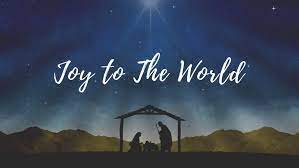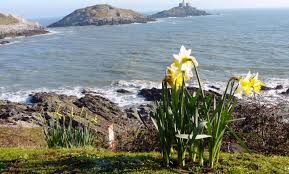Readings
Isaiah 35:1-10
In this section the return of the exiles is expressed in terms of the transformation of the wilderness and the transformation of the environment which coincides, or perhaps is linked, with a transformation in humanity.
People transform their environment and are transformed by their environment.
Maurice Andrew remembers that his grandparents had the text ‘streams in the desert’ on their bedroom wall and he goes on to say that they lived by the Waikato River and he doubts if he could ever have imagined what a desert was like.
He thinks they had the text on the wall because everyone realises, whatever their circumstances, there are times when transformation is needed and that even people in their own country may still need to return to their land and find their way back to where they belong. [1] Continue reading Bring Joy To The World










 St Ninian
St Ninian















